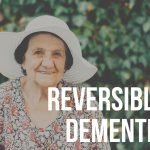It is easy to confuse some of the symptoms of aphasia and dementia, which often leads to questions on whether the two medical conditions are related.
Before we go deeper into answering the query, it is important to first define these conditions.
Aphasia is a language or speech disorder that is a result of complications in the brain.
In Greek, the word Aphasia translates to speechlessness.
Dementia, on the other hand, is a general term that describes a range of medical conditions that are caused by abnormal brain changes.
In Latin, the term dementia stands for “madness” which implies severe memory loss in a person who was previously normal beyond what is expected as a person grows older.
Contents
Similarities between Aphasia and Dementia

Some factors may lead persons to believe that dementia and aphasia are quite similar.
One of them is the fact that a person who has aphasia can have challenges finding the proper words to use when holding a conversation.
It is something that persons with dementia may also struggle with. Both conditions are also caused by damage that occurs in the brain.
Another similarity that the two conditions share is that diagnosis of dementia and aphasia is often done through observation of symptoms.
There is No Set Test
This is because there is no specific test that can offer conclusive evidence of the disease.
There is also no approved cure for both aphasia and dementia.
Treatment is usually done to reduce or eliminate some of the symptoms that a person is experiencing.
Keep in mind that there are different types of dementia, which are caused by various factors.
These may also include infections like HIV and meningitis, hormone disorders, metabolic disorders, chronic alcoholism, drug abuse, and nutritional deficiencies.
This implies that there are treatable dementias, especially in the case where the causes can be cured.
It is also worth mentioning that there is a type of aphasia known as progressive aphasia that is a progressive illness that continues to become worse as time goes by.
This is a characteristic that the disease shares with dementia because it is also a progressive illness.
It is caused by a type of dementia that is known as frontotemporal dementia.
Progressive aphasia starts with the impairment of language abilities and after some time, the affected individual may also experience attention and memory impairment.
Most people with progressive aphasia also develop additional dementia symptoms.
Differences between Aphasia and Dementia

Several differences crop up when comparing dementia and aphasia. Here we will discuss the three main ones touching on communication, behavior, symptoms, and cause.
Communication
We have already noted that communication problems are present in both disorders. When it comes to communication, however, some subtle differences come up for individuals with dementia and the ones with aphasia.
A person with aphasia may already know what they are trying to say, but they may not be able to communicate the idea clearly.
With dementia, a person may lose sight of what they were trying to say.
While both persons may be searching deep in their brain to find purpose or meaning in what they want to say, the one with aphasia can toy around with the word on the tip of their tongue but this is not possible for the one with dementia.
Behavior
When it comes to behavior, a person with dementia will, at some point, need help to complete day to day activities because of the extent of brain damage that happens as the disease progresses.
Individuals with aphasia will continue to function “normally” in regards to daily activities. They will not need assistance with activities like eating, grooming, or drinking because they only have challenges with speech and conversations.
Symptoms
The symptoms of aphasia and dementia also vary.
Symptoms that a person with aphasia may showcase include the inability to read aloud, constant phase repetition, challenges with writing, inability to recollect the name of objects, the substitution of letters or words, and even speaking things that do not make sense.
While persons with dementia may experience some of the aphasia symptoms, they may also encounter other symptoms such as memory loss, confusion, mood changes, difficulties concentrating, and inability to perform day-to-day activities amongst others depending on the stage of the illness.
These are symptoms that are not common with individuals who are suffering from aphasia.
Causes of Aphasia and Dementia

We have already established that both dementia and aphasia are caused when there are damages in the brain.
What sets the two conditions apart is the section of the brain that is hurt.
For aphasia, people will get the illness when the part of the brain that controls speech is damaged. This mostly happens because of traumatic brain injury or a stroke.
Infections and brain tumors are other probable causes of aphasia.
Dementia is quite different from this.
Even though a stroke or traumatic brain injury can also cause it, it is mostly a result of amyloid plaque build-up in the brain, which leads to the development of the most common dementia type known as Alzheimer’s disease.
This build-up cuts off neurons in the brain that are responsible for relaying messages from one part of the brain to the next.
It ends up affecting the entire brain and not the speech part, as is the case with aphasia.
This is why a person with dementia may not know the name of a familiar face or even remember how to hold a fork because they cannot access their memories.
The person with aphasia only has problems accessing the part of the brain that deals with speech.
These differences between aphasia and dementia are instrumental when it comes to diagnosis.
A doctor can study the symptoms to know whether a person is only having trouble with speech or they are having communication problems as well as other challenges with their day to day lives to understand what the person is suffering from.







